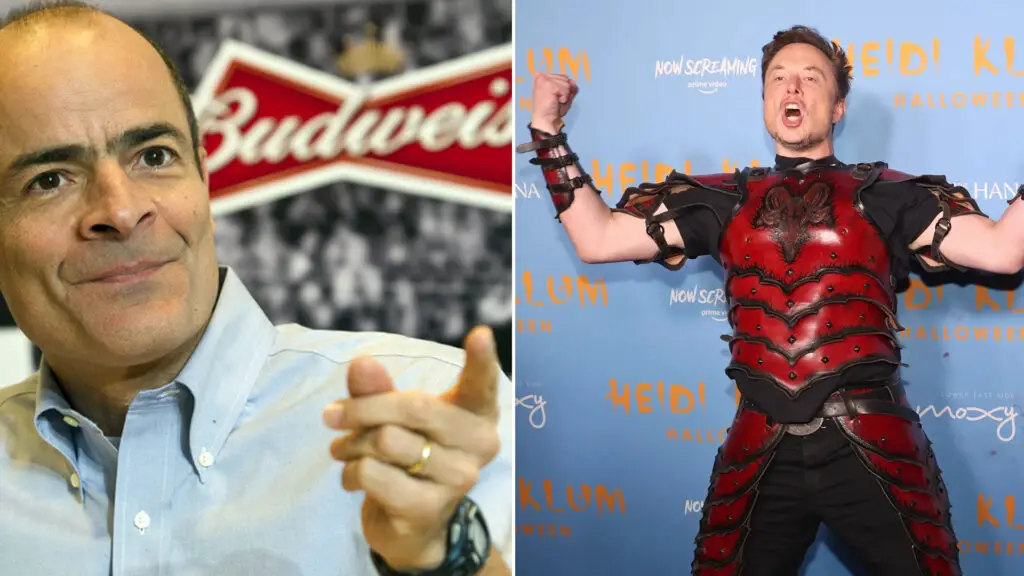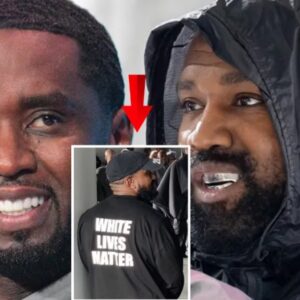In a shocking turn of events, Budweiser, one of the world’s largest beer companies, has taken an $800 million financial hit, and the culprit behind this major loss is none other than Elon Musk. The tech mogul, known for his influence on markets and his controversial opinions, has once again demonstrated his ability to shake up industries. This time, his remarks and actions have had a profound impact on Budweiser’s brand image, causing a significant drop in its market value.

The Root of the Problem: Elon Musk’s Comments
Elon Musk has never been shy about sharing his thoughts, whether on technology, politics, or business. Recently, he made a series of comments on social media platforms criticizing Budweiser’s marketing strategies and questioning the quality of their products. Musk, who has over 150 million followers on X (formerly Twitter), used his platform to take jabs at Budweiser’s advertising campaigns, labeling them outdated and irrelevant in today’s market.
He also suggested that the beer industry, particularly brands like Budweiser, had failed to innovate and cater to the tastes of younger, more health-conscious consumers. Musk’s words quickly went viral, igniting a social media storm. His tweets triggered a wave of online discussions and debates, with many agreeing with his views and some even pledging to boycott Budweiser.
A Massive Drop in Stock Value
The ripple effect of Musk’s comments was almost immediate. Budweiser’s parent company, Anheuser-Busch InBev, saw its stock price plummet within days. Investors were quick to react to the negative press and the potential impact on the company’s reputation. The result was an astonishing $800 million loss in market value for the beer giant.
Financial experts were taken aback by the speed and scale of the decline. While Budweiser has faced challenges in the past, this particular blow was unexpected. Many attribute the sharp drop to the sheer influence of Musk’s brand and his ability to mobilize his fanbase to take action, whether it be buying stocks, switching brands, or, in this case, boycotting a product.
Budweiser’s Struggles: A Brewing Problem
Budweiser has been facing several challenges in recent years. With changing consumer preferences, the rise of craft beer, and increasing demand for healthier, non-alcoholic beverages, the company has struggled to maintain its dominant position in the market. Younger generations, particularly millennials and Gen Z, are drinking less beer and are more inclined to explore artisanal and low-calorie options.
To combat these issues, Budweiser has launched several marketing campaigns aimed at revitalizing its brand and appealing to modern consumers. However, these efforts have not yielded the expected results. Musk’s critique of Budweiser’s failure to innovate hit a nerve and echoed sentiments already felt by many in the industry.
Social Media Backlash and Boycott
The power of social media cannot be understated in today’s business landscape. When Elon Musk speaks, people listen—and act. Following Musk’s comments, a social media movement began with hashtags like #BoycottBudweiser trending on platforms like X, Instagram, and Facebook. Videos and memes criticizing Budweiser’s brand, products, and advertising efforts flooded the internet.
A significant portion of the younger demographic, particularly those in the tech and innovation sectors, sided with Musk. Many consumers began posting images of themselves switching to other beer brands or opting for non-alcoholic alternatives. This movement created a snowball effect, further damaging Budweiser’s brand image.
Damage Control: Budweiser’s Response
Faced with mounting criticism and a staggering financial loss, Budweiser has scrambled to regain control of the narrative. The company issued a statement downplaying Musk’s comments, stating that they are committed to evolving and adapting to changing consumer preferences. Budweiser emphasized its long history and legacy in the beer industry while pointing to its recent initiatives, such as launching lower-calorie beers and expanding its product line to include non-alcoholic beverages.
In an attempt to salvage its reputation, Budweiser also announced plans to collaborate with influential figures in the tech and innovation sectors, hoping to appeal to Musk’s audience. However, whether these efforts will be enough to reverse the damage remains to be seen.
Elon Musk’s Power Over Markets
This incident is yet another example of Elon Musk’s outsized influence over markets and brands. Whether it’s Tesla, Bitcoin, or in this case, Budweiser, Musk’s words and actions have the power to shape public opinion and sway financial markets. His influence stretches far beyond his role as the CEO of Tesla and SpaceX. As a cultural icon and one of the wealthiest individuals on the planet, Musk’s opinions resonate with millions, making him a force to be reckoned with.
What’s Next for Budweiser?
The future of Budweiser remains uncertain in the wake of this $800 million loss. The company will need to take swift and decisive action to repair its brand and regain consumer trust. Rebranding efforts, innovative product offerings, and potentially even a collaboration with influencers or industry leaders could help Budweiser bounce back from this setback.
As for Elon Musk, this incident is just another reminder of the profound impact he has on the world. His criticism of Budweiser has not only shaken the beer industry but also showcased the vulnerability of even the most established brands in today’s fast-moving, influencer-driven marketplace.
Conclusion
Budweiser’s $800 million hit thanks to Elon Musk is a stark reminder of the power of social media and the sway that influential figures like Musk hold. For Budweiser, this financial blow signals the urgent need to adapt to changing consumer preferences and rethink its marketing strategies. Whether the company can recover from this remains to be seen, but one thing is certain—Elon Musk’s words have left an indelible mark on yet another industry.




